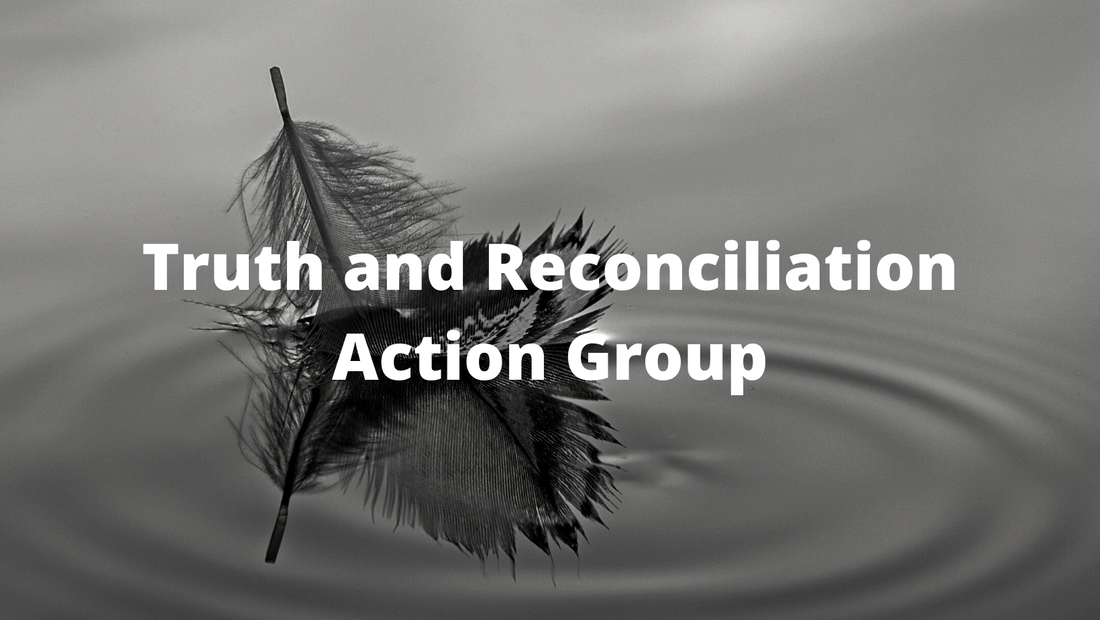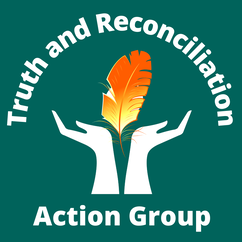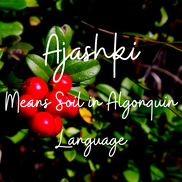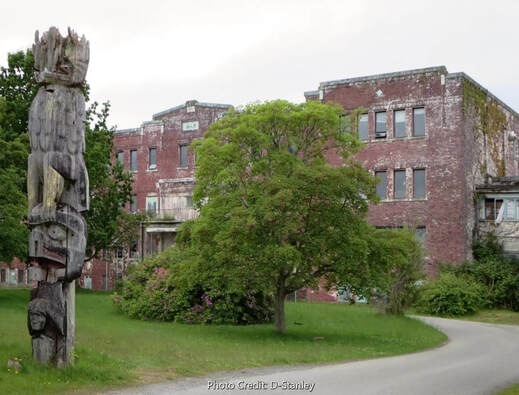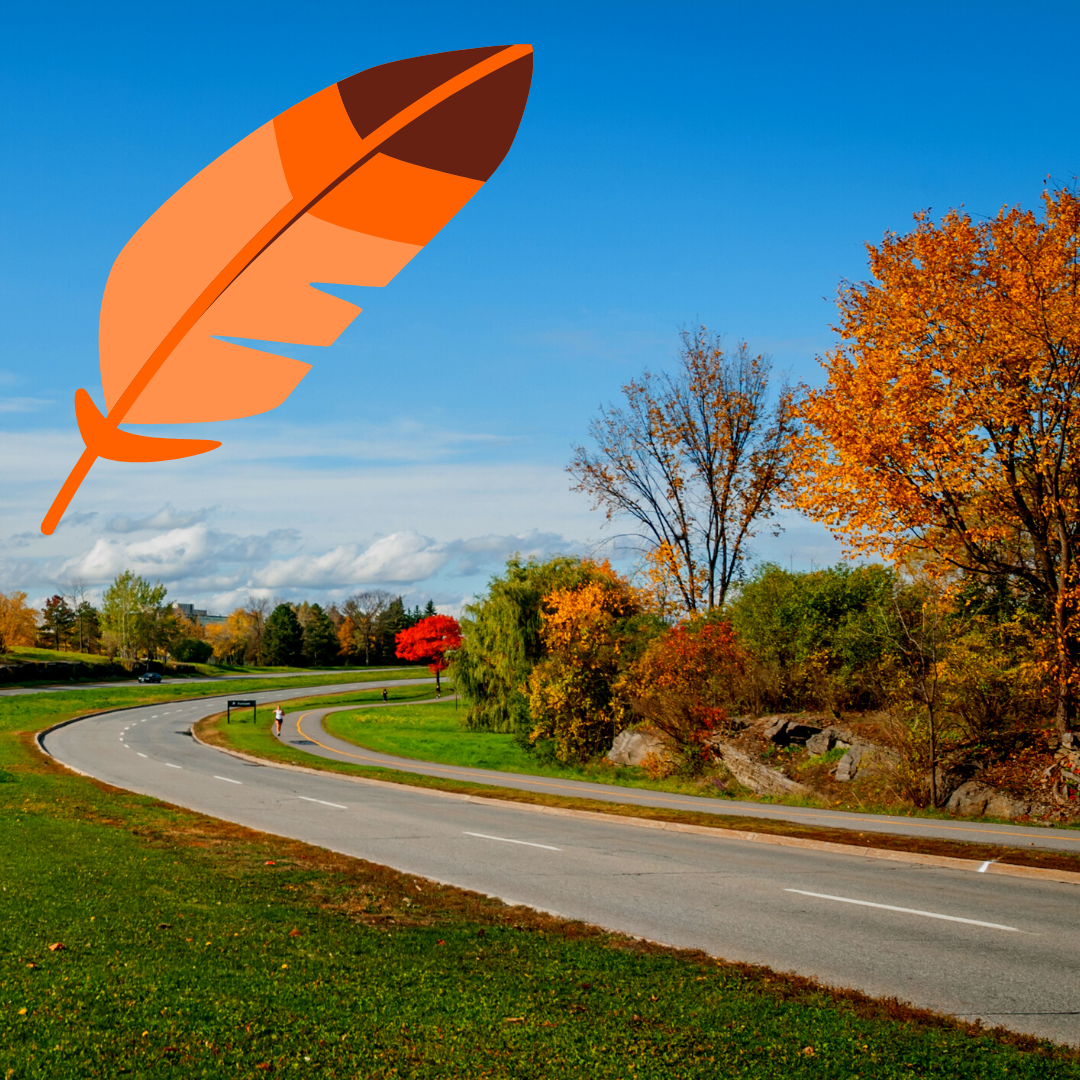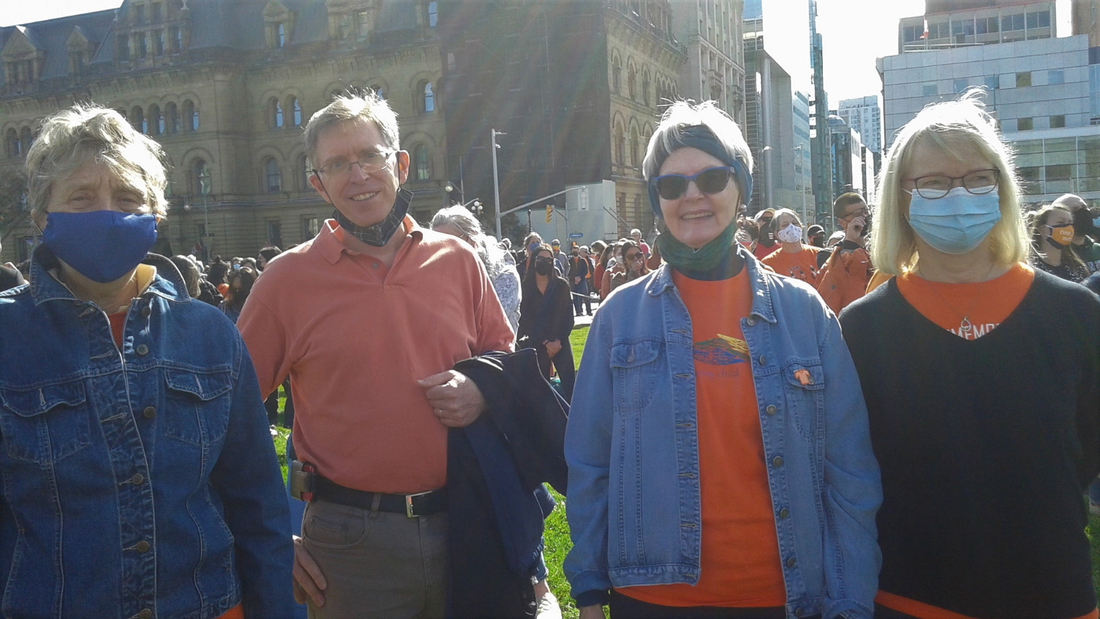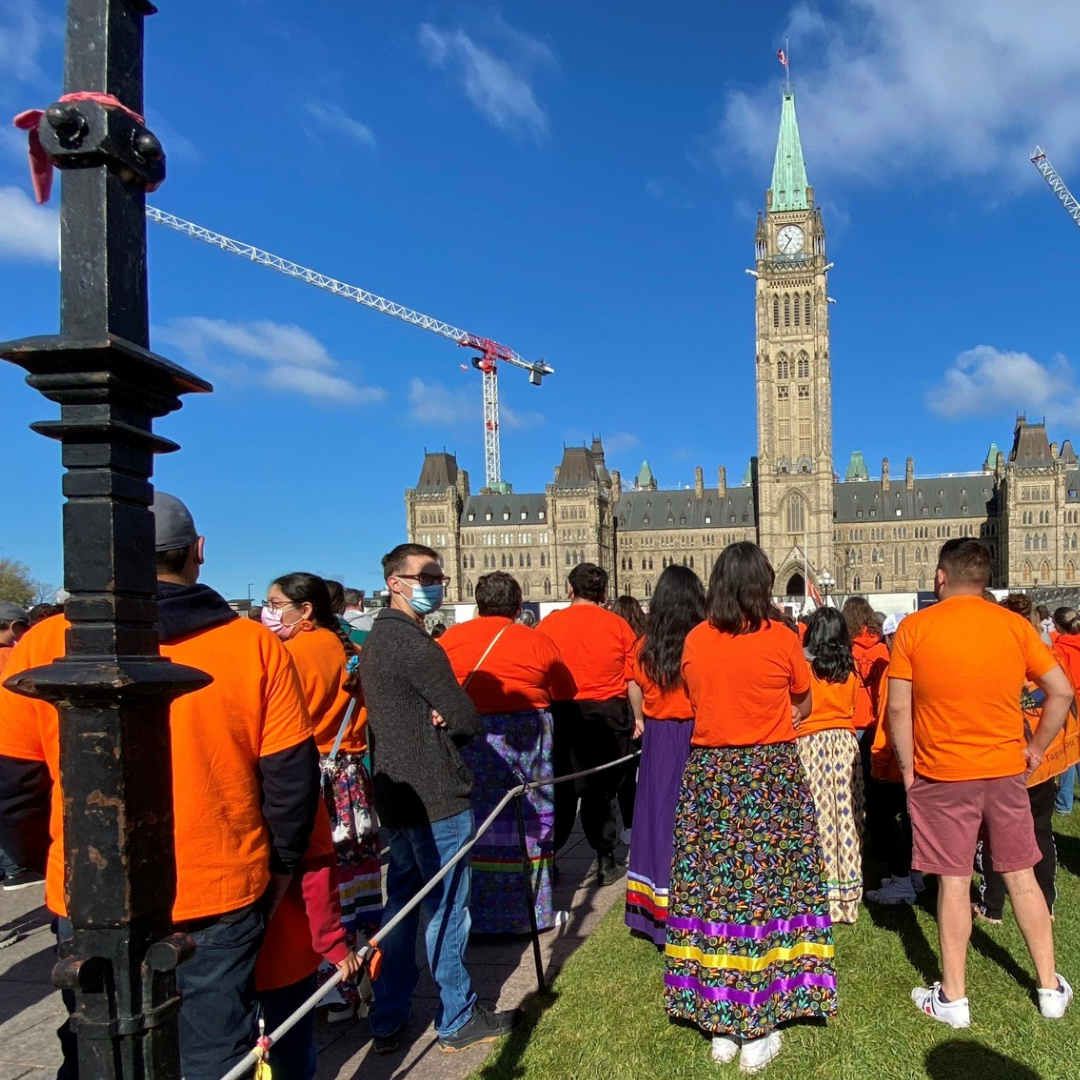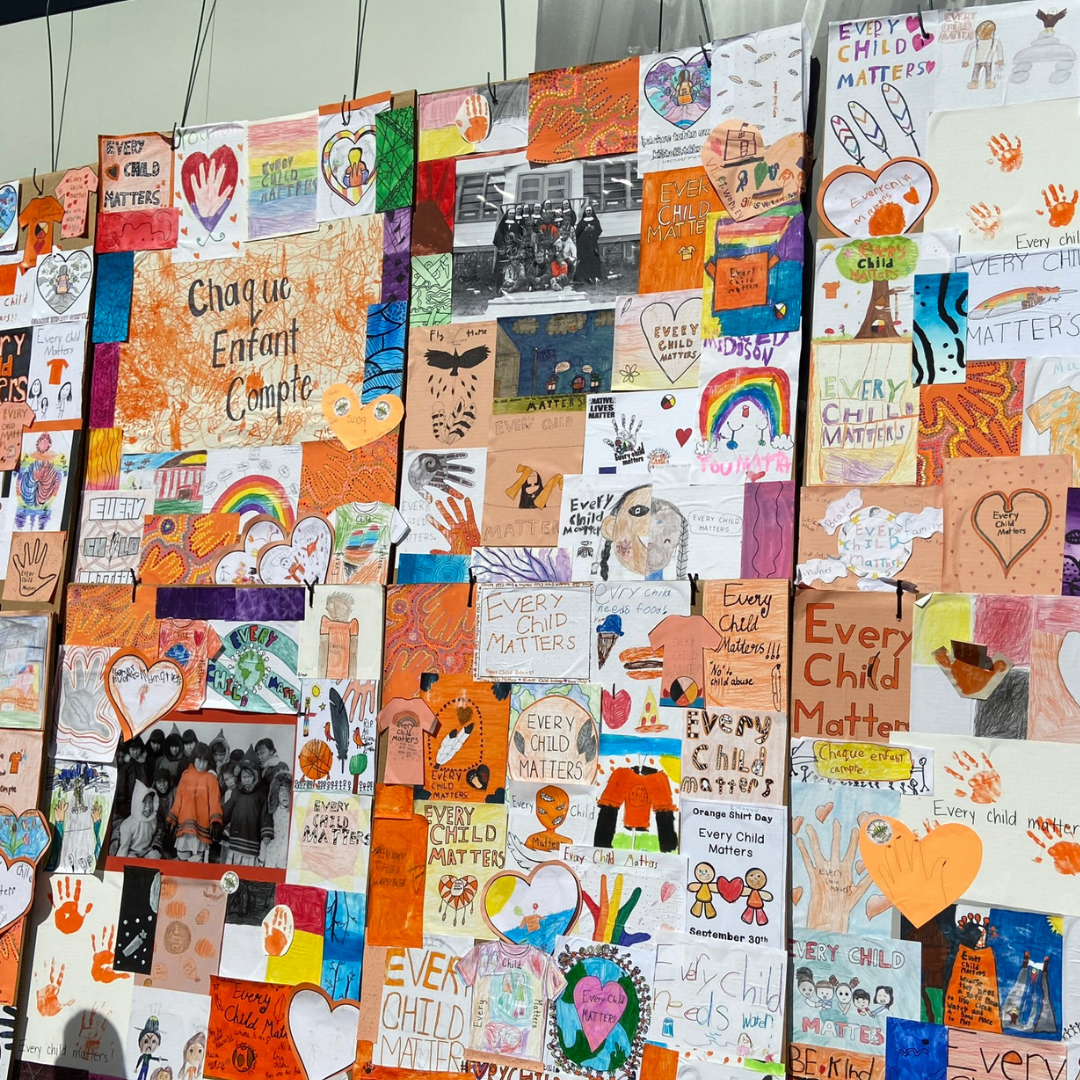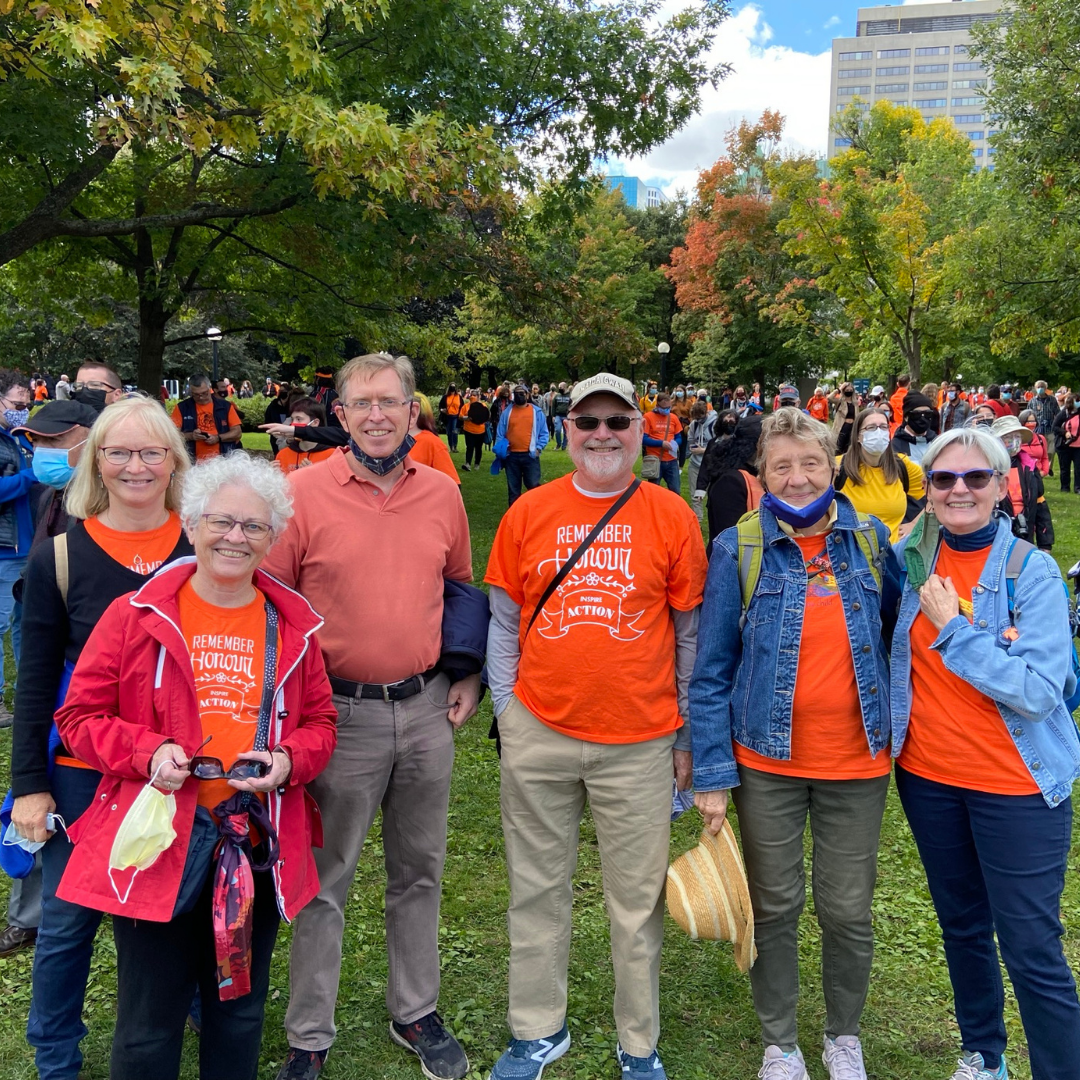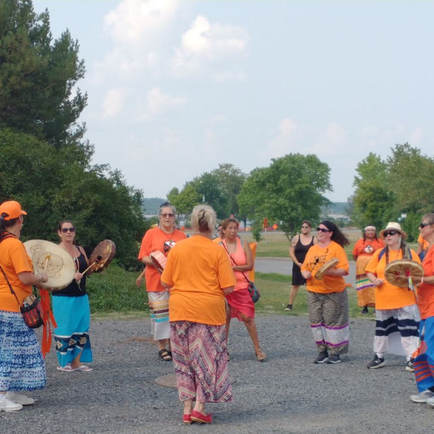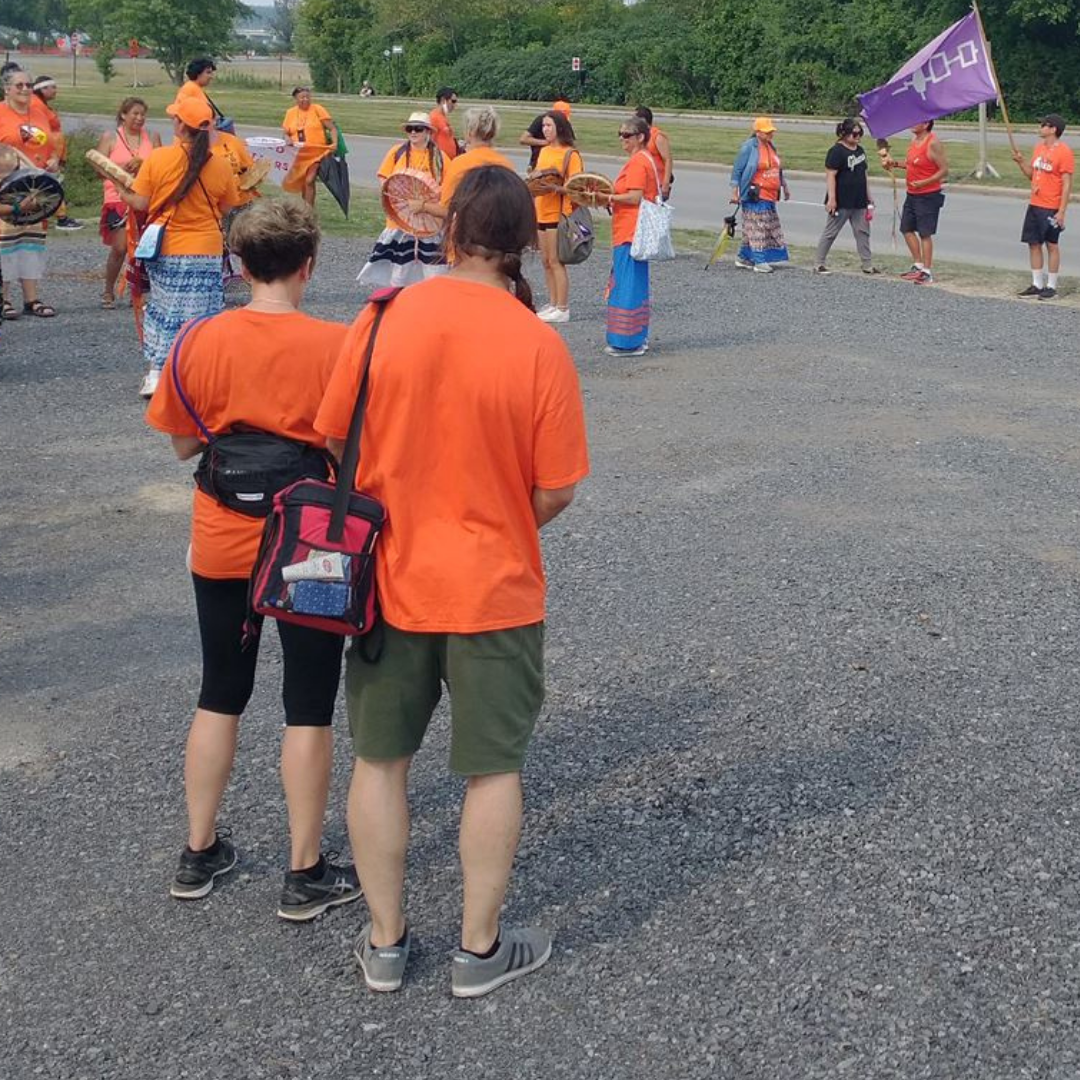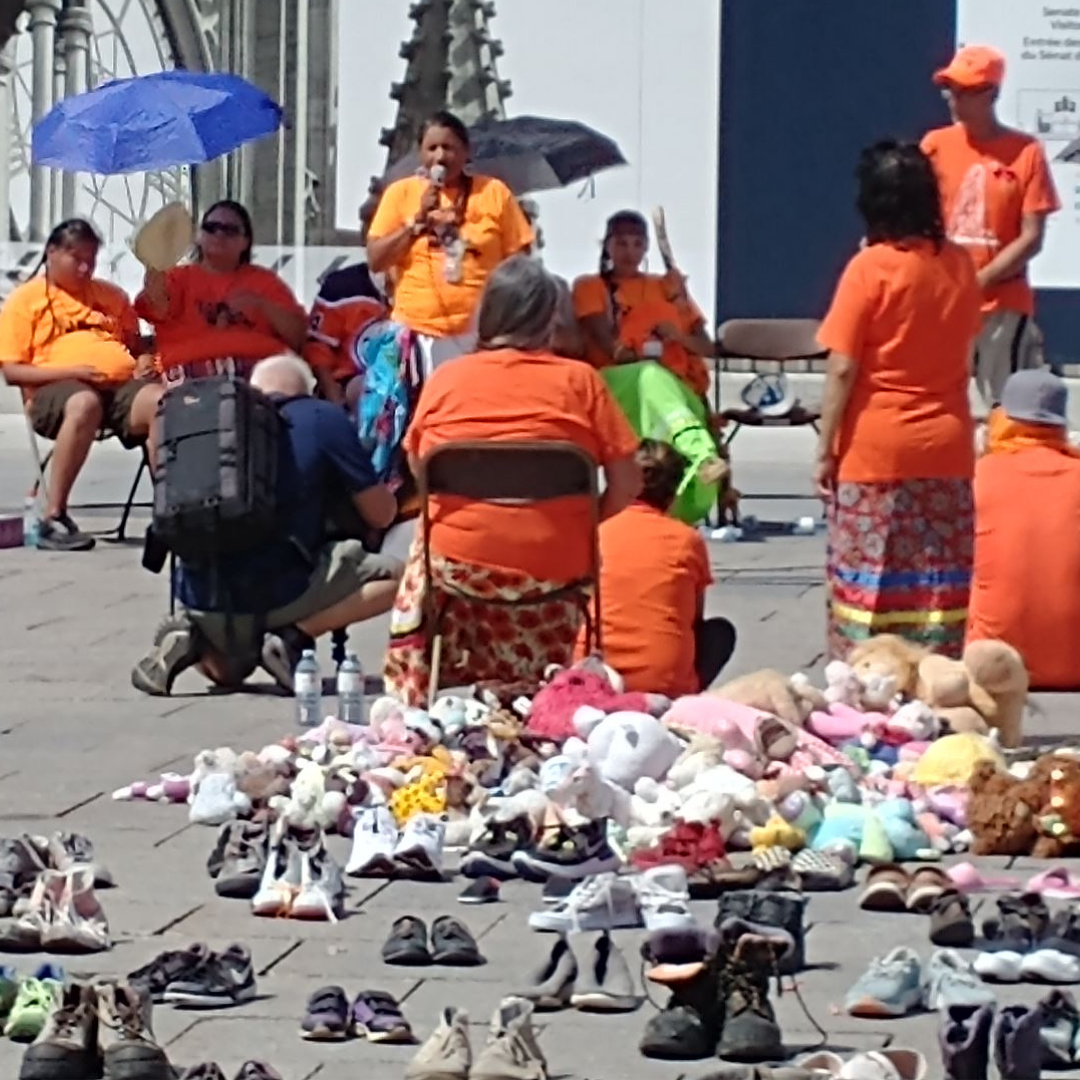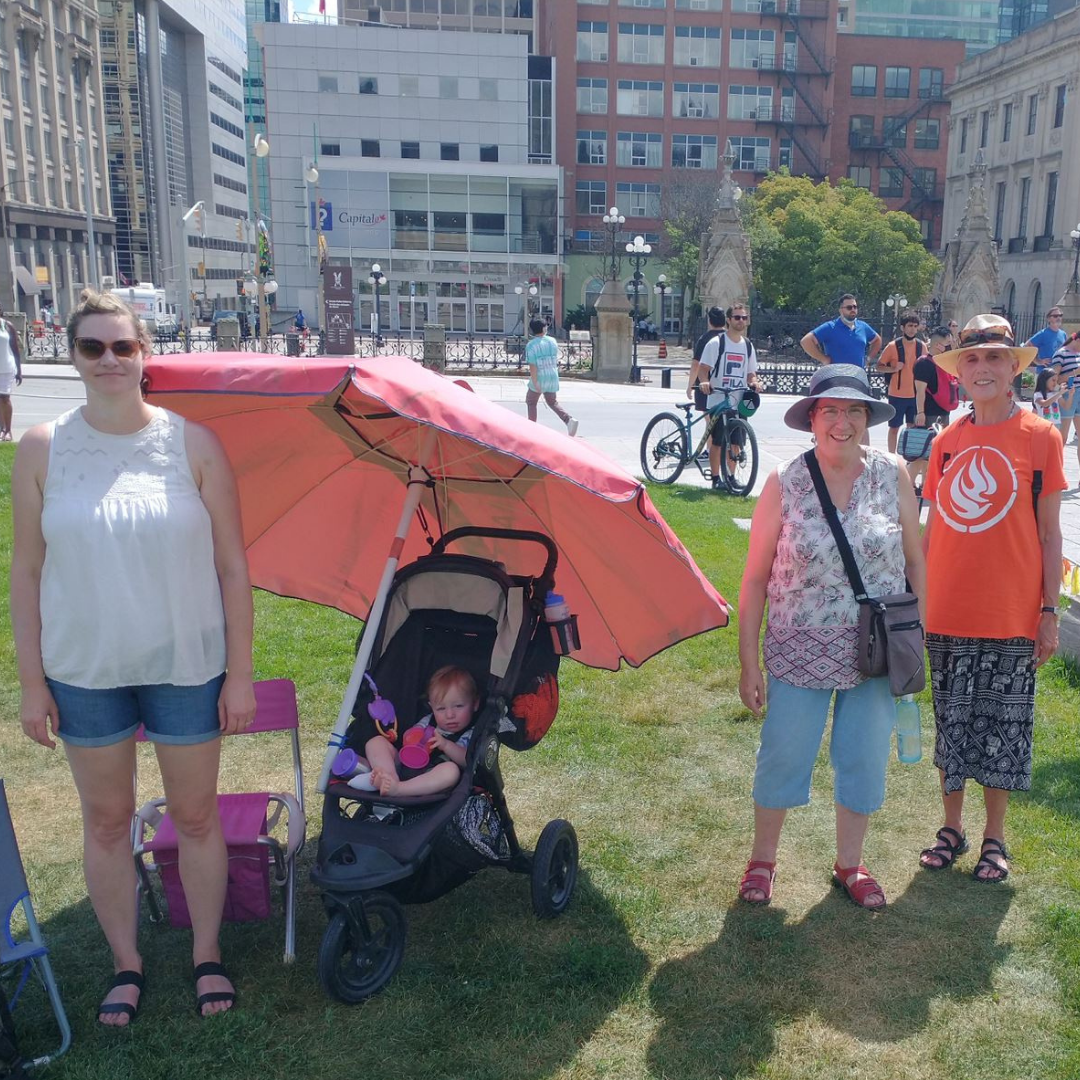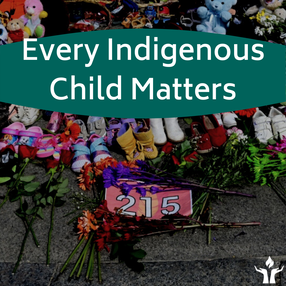CLIck here to jump to upcoming events!
Our History
These include a mixture of both internally-focused self-examination and learning initiatives and externally-focused advocacy, fundraising and partnership initiatives. All externally-focused initiatives will be ones called for, and ideally led, by Indigenous people.
our planOur goals include: raising awareness and educating non-Indigenous people, participating as allies in initiatives led by Indigenous organizations, advocating for systemic change, and fundraising.
Activities may include:
|
reparationsBelow, you'll find a short list of Indigenous organizations that could use your financial support. There are many more, but these are a place to start.
Minwaashin Lodge
Minwaashin Lodge provides programs and services to Indigenous women and children who are survivors of domestic and other forms of violence, including the effects of the residential school system. Programs and services are provided in the context of cultural beliefs and values to ensure a holistic approach is used on the healing journey. Odawa Native Friendship Centre A self-determined Indigenous owned and operated community centre offering programs, services and supports to Ottawa's urban Indigenous community. Wabano Centre for Aboriginal Health More than a health centre, Wabano is a proud, Indigenous organization dedicated to helping Indigenous people live the good life. Here, First Nations, Inuit and Métis people guide the path of their health and their healthcare. |
If you would like to get involved, scroll down for actions we're supporting, suggested reading, and more.
For more information or to join our group, please contact [email protected]
For more information or to join our group, please contact [email protected]
Get Involved
Projects at firstu
|
Ajashki Means Soil in Algonquin Language
Ajashki is FirstU’s response to the Truth and Reconciliation Commission’s “Call to Action,” the UN’ Sustainable Development Goal #2 to end poverty, and UNDRIP’s effort to reduce systemic racism. Ajashki wants to harness the potential of youth leaders by promoting access to Indigenous language and culture related to ancestral gardening practices. You can read more about the Ajashki Project HERE. |
Reflections on reading the 94 calls to action during the #94IN94 CAMPAIGN
During the 94 days leading up to September 30th's National Day for Truth and Reconciliation, TRAG took part in the #94in94 Campaign which highlighted each of the 94 Calls to Action - one per day - and encouraged people across Turtle Island to take action in different ways. Below, you can read the thoughts and reflections of some of our participants.
|
From Carmen:
I received the daily notifications, which helped me develop a sense of the scope of these Calls for Action. Receiving the notifications provided a full overview and understanding of the document, which we would need to use as reference, as well as a starting point to engage in further reconciliation action. I also shared some of the calls on my Facebook page, in an attempt to let others know (or know more) about Truth and Reconciliation. From Jan: I have become more aware of all the work yet to be done - only 13 Calls to Action have been completed, with 29 projects underway, 32 proposed and 20 not started (you can check progress on the 94 Calls here). |
|
A few of the Calls to Action (#48, #49 and #60) are specifically directed at religious organizations such as ours and I am now more aware of the work we still need to do. For example #48: We call upon the church parties to the Settlement Agreement, and all other faith groups and interfaith social justice groups in Canada who have not already done so, to formally adopt and comply with the principles, norms, and standards of the United Nations Declaration on the Rights of Indigenous Peoples as a framework for reconciliation.
Our TRAG group is committed to exploring what this means for our FirstU Community so we can move forward in an honourable way. good news: The NCC will rename SJAMMembers and friends of FirstU agree with the NCC'S recent decision to rename the SJAM Parkway to honour Indigenous people.
Last September, many of us marched with Elder Albert Dumont with this goal in our minds and hearts (see We Were At section, below). Please read the CBC article in this LINK for details.
|
we were at
|
Solidarity Walk with Elder Albert Dumont
Friday, September 30 - 8:45am National Holocaust Monument Please join us on September 30th to walk in solidarity with Albert Dumont who plans to "Walk with optimism and confidence that the National Capital Commission will rename the SJAM Parkway to the Kichi Zibi Parkway. A man who promotes the inhumane act of genocide should not have a roadway in the Nation's Capital named after him." Meet at the National Holocaust Monument, at 8:45am to begin walking at 9am OR join in anywhere between the Monument and the Parkdale entrance to the Parkway. Don't forget to wear your masks AND your orange shirts! |
|
Remember Me: A National Day of Remembrance
Thursday, September 30 The City of Ottawa observed the first National Day for Truth and Reconciliation honouring First Nations, Inuit and Métis Survivors, their families and communities, and meant to ensure that public commemoration of their history and the legacy of residential schools remains a vital part of the reconciliation process. We took part at the Remember Me events on Parliament Hill. |
|
Walk of Sorrow: Solidarity Walk + Final Ceremony
Saturday, August 21 and Sunday, August 22 After hearing about the unmarked graves at the residential school in Kamloops, BC, Patricia Ballantyne decided to walk from Prince Albert, Saskatchewan, to Ottawa on a journey of healing. A main goal of Patricia’s is to reach Ottawa in August and raise awareness about current-day Indigenous childcare policies. TRAG supported Patricia Ballantyne's Walk of Sorrow on August 21 Some of us stood in solidarity with Patricia and her team of walkers for ceremonies and sharing of stories at Kitchissippi Lookout; others convened at Remic Rapids to join the intended (but unexpectedly cancelled ) second-last leg of the walk. |
On August 22, we joined in solidarity with Patricia, the walkers and other supporters, mostly Indigenous people, for ceremonies, speeches and the final leg of the walk from the Gather-Ring to its destination, Parliament Hill. Others of us who were not in Ottawa watched the live transmission of the Parliament Hill proceedings.
While we went to show solidarity with residential "school" survivor and the families of the deceased, we gained much from Patricia and the walkers.
Their stories and ceremonies were extremely moving and rich with learning for us.
While we went to show solidarity with residential "school" survivor and the families of the deceased, we gained much from Patricia and the walkers.
Their stories and ceremonies were extremely moving and rich with learning for us.
suggested reading
Calls to Action
Read all 94 Calls to Action issued by the Truth and Reconciliation Commission, and put pressure on local and national governments and organizations to make good on them.
Books for Young Children
After the first mass grave was uncovered at the former Kamloops residential "school", the CBC issued an article (Chantelle Bellrichard) suggesting books about the residential "school" system that are age-appropriate for kids under twelve. Read these aloud if you need a starting point from which to build conversations about the children whose lives were lost at the hands of Canada's residential "school" system. You can find a pdf of the article here.
Read all 94 Calls to Action issued by the Truth and Reconciliation Commission, and put pressure on local and national governments and organizations to make good on them.
Books for Young Children
After the first mass grave was uncovered at the former Kamloops residential "school", the CBC issued an article (Chantelle Bellrichard) suggesting books about the residential "school" system that are age-appropriate for kids under twelve. Read these aloud if you need a starting point from which to build conversations about the children whose lives were lost at the hands of Canada's residential "school" system. You can find a pdf of the article here.
CUC STATEMENT - FOLLOWING THE DISCOVERY OF A CHILDREN'S MASS GRAVE ON THE SITE OF KAMLOOPS INDIAN RESIDENTIAL SCHOOL
|
Since the initial uncovering of the bodies 215 children on the site of the former Kamloops Indian Residential School, many more remains have been unearthed. As of October 27, 2021, the remains of 7,317 Indigenous children have been found, and we know there are many more who still need to be returned to their homes and extended families.
Below is the CUC statement following that initial discovery in Kamloops: "Canadian Unitarian Universalists share the grief and sorrow over the recent discovery of the remains of 215 children on the site of the former Kamloops Indian Residential School. We are profoundly shaken, while recognizing that sadly it does not come as a shock to many Indigenous families across the country.
|
The discovery further shows the immense harm done by the residential school system and the effects that continue to be felt today. This is genocide, and there are remains of children and youth at almost every former residential school site. It is a start, but not enough, for the government to offer reparations for the 215 children; we urge that it must be a priority to recover the remains of all the other lost children.
The CUC committed in 2014 to upholding the recommendations of the United Nations Declaration on the Rights of Indigenous Peoples, and we reaffirm our support for implementing this, as well as the calls to action of the Truth and Reconciliation Commission, as the best means of addressing the injustices Indigenous people in Canada face.
We encourage Canadians to write to their Member of Parliament to press for action that will help repair some of the harm done, to consider donating to the Indian Residential School Survivors Society, and to continue the work to educate ourselves about the history and impact of the residential school system.
Together we must ensure that every child matters and no children are forgotten."
The CUC committed in 2014 to upholding the recommendations of the United Nations Declaration on the Rights of Indigenous Peoples, and we reaffirm our support for implementing this, as well as the calls to action of the Truth and Reconciliation Commission, as the best means of addressing the injustices Indigenous people in Canada face.
We encourage Canadians to write to their Member of Parliament to press for action that will help repair some of the harm done, to consider donating to the Indian Residential School Survivors Society, and to continue the work to educate ourselves about the history and impact of the residential school system.
Together we must ensure that every child matters and no children are forgotten."
